CTV in trouble

CTV is the parent corporation of Space (Canada's science-fiction specialty channel) and Discovery Channel Canada. The are predicting a $100 million loss from their broadcast TV operations this year.
The Robert J. Sawyer Web Site
Library Journal on Wake: "Sawyer's erudition, eclecticism, and masterly storytelling make this a choice selection."

The Robert J. Sawyer Web Site
Amazon.com released this statement on Friday:
The Robert J. Sawyer Web Site
Labels: ebooks
Y'all know I submitted Watch, the second volume of my WWW trilogy to my editors (in Toronto, New York, and London) on Monday of this week.
The Robert J. Sawyer Web Site
Labels: Milestones

"I always look forward to Robert J. Sawyer's books. One reason is that Sawyer is just about the best science fiction writer out there these days: compelling stories, believable scenarios, science and fiction that really interact. But the main reason is that after reading and reviewing several Sawyer novels, I know that each book he writes will be unique.The paper went on to name Calculating God the best SF novel of the year -- giving it the paper's Rocky Award -- and included it on their list of the year's best books of any type.
I think it is safe to say that no book of popular science fiction exists that is remotely similar to Calculating God. In an effort to convince Tom Jericho of God's existence, Hollus uses scientific laws and the mathematics of probability. His arguments are the most convincing I have seen since Thomas Aquinas — maybe more so.
I have always thought that a good novel keeps readers turning the pages to find out the fate of characters they care about. But for fiction to be called literature, the story should stay with readers and keep them thinking about it long after the book has been put away. It is safe to say that Sawyer has accomplished both with Calculating God
"Here are a few of the things I like about Robert J. Sawyer: His novels are fast moving and tightly constructed; his characters are developed so that I care what happens to them; the science in his science fiction is intrinsic to the plot but not so arcane that readers have to be nuclear physicists to understand it; and he doesn't imitate others or himself."Robert Charles Wilson and I had a wonderful lunch with Mark Graham at last year's Worldcon in Denver (Mark's a big fan of Bob's books, too), and when I was in Denver on book tour for Rollback, Mark gave the introductory comments about me at my event at The Tattered Cover.
The Robert J. Sawyer Web Site
Labels: Deaths, Publishing
I said very nice things about Patrick Rothfuss's first novel on the book's dustjacket:
"Hail Patrick Rothfuss! A new giant is striding the land. The Name of the Wind is an astonishing novel that just happens to be the writer's first. The bestsellers' lists and the award ballots are beckoning toward Rothfuss, and readers will be clamoring for more of the riveting life story of Kvothe. Bravo, I say! Bravo!" -- Robert J. Sawyer, Hugo Award-winning author of HominidsWe are indeed clamoring, but Pat is behind schedule on the second book, and his long blog post today (with cartoons!) about that makes fascinating reading.
I say that as a joke, but like most jokes it has a grain of truth to it. That's the reason I've turned the comments off for this blog. I know they would break down roughly like this:Man, I know exactly how he feels. I turned off anonymous commenting in my blog many months ago because of that. I wonder why people choose to be nasty and snarky and I wonder if they know just how small they are for doing so anonymously or under a pseudonym?
30 considerate, supportive comments.
20 touching, heartfelt comments.
15 funny comments
10 comments saying, "Meh, I already knew."
5 passive-aggressive snarks masquerading as one of the above.
1 comment from some anonymous frothy dickhole.
And you know which comment I'd focus on? Yeah. The last one. It would sit there like a steaming turd in my bowl of cereal. It doesn't matter how delicious the cereal is. It could be Fruity Pebbles, or even Cookie Crisp. But in a situation like this it doesn't matter. You can't just eat around it. All you can do is focus on the turd.
The Robert J. Sawyer Web Site
Labels: Writing
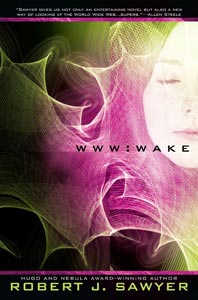
I read Wake on my phone by downloading the ebook version of Analog from Fictionwise. Not only was the novel excellent, but I found this was a good way to get the book early and in a format which allowed me to take it with me on my commutes.Thanks for asking. I'm not planning to offer Watch to Analog. It was great publicity for launching the series to have the first volume serialized there (I did the same thing with the first volume of my Neanderthal Parallax series, Hominids), but I'm not sure it makes business sense to cannibalize overall book sales of the entire series.
So I wonder if there is any chance for Watch being serialized in Analog, too?
The Robert J. Sawyer Web Site
Labels: Publishing, Wake, Watch, WWW
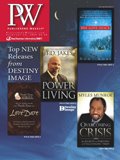
The Robert J. Sawyer Web Site
Labels: Wake

- Take Hwy 403.
- Past the Brantford exits, you'll come to Hwy 2 Paris Rd exit
- Stay in right lane -- sign will say to Paris
- Follow on Paris Rd until you get to the 2nd set of stop lights. (Tim Hortons on the corner)
- Turn left onto Dundas St. stay in right lane
- Take Willow St. exit towards downtown
- Go to stop sign turn left on William St. stay in left lane
- Go through the main intersection (stop lights) and the library is one block over on your right.
The Robert J. Sawyer Web Site
Labels: Rollback
Yeah, yeah, we all know Rob's into big government :) so feel free to tune this out, but here's a guy who just got a $6,000 phone bill for using his iPhone in Mexico. And, yeah, sure, we can all smugly argue that this particular guy should have known better -- but stories like this crop up all the time.
The Robert J. Sawyer Web Site
Labels: Rants
In response to my posting about being unable to publish any further non-Canadian authors under my Robert J. Sawyer Books imprint, Marcos P. Donnelly sent the following:
BROCKPORT, NY, REVOKES NAFTA
BROCKPORT, February 26 -- In a surprise response to complaints by the Canada Council for the Arts concerning the publication of U.S. works by Robert J. Sawyer Books, the upstate New York town of Brockport announced its unilateral revocation of the North American Free Trade Agreement.
"That's it, we're done, we've had it!" fumed town supervisor Nat O. Lester, who declared the revocation late Thursday. "We're shipping back all the Labatt's in town, and we're closing our portion of the Erie Canal to Canadian boaters."
Town merchants voiced initial support of the NAFTA overturn. "I'm sick of those foreigners sneaking in here with their funny-looking money," said Lorenzo Villaguarde, owner of Lorenzo's Mexican Market in downtown Brockport. "You know how hard it is to convert from Canadian dollars to American dollars to Mexican pesos to Colombian pesos? Madre de Dios, the exchange fees are killing me! Seal the border!"
Reaction from Washington was guarded.
"As the, uh, new guy here in the Oval, uh, Office, I'm not fully ... fully certain whether Brockport has, uh, the legal right to reverse, um, NAFTA," said one Washington official who declined to be identified due to his high rank in the administration. "The Canadians seemed ... pretty nice to me. Didn't they seem, uh, nice? I think they're nice."
But as Washington waffled, Brockport bustled to rid their town of all things Canadian. Bulldozing of the local Tim Horton's began at 8:00 p.m EST, and the local Wegman's announced it would now refuse any checks drawn on Scotiabank or Toronto-Dominion.
"In addition, I'm encouraging Brockport citizens to send testy emails to Canadian political leaders," supervisor Lester said, although he later admitted he couldn't identify any of those leaders by name.
In an ironic twist to the Brockport NAFTA revocation, local author Marcos P. Donnelly discovered that the Canadian engine of his Chevrolet Cavalier had been removed from his car and deported.
"Great," Donnelly muttered. "Now how the fuck do I get to work tomorrow?"
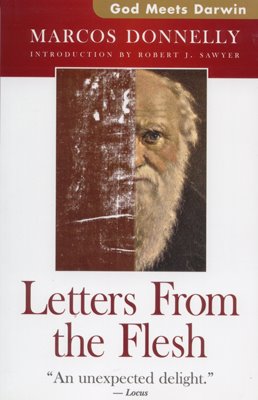
The Robert J. Sawyer Web Site
Labels: RJS Books

The Robert J. Sawyer Web Site
Labels: Software
I'm lucky, and I know it; most of my colleagues aren't.
The Robert J. Sawyer Web Site
Labels: Publishing, Writing

The Robert J. Sawyer Web Site
Labels: RJS Books
They broke up today.
The Robert J. Sawyer Web Site
Today's New York Times has an op-ed piece by Roy Blount, Jr., president of the Authors Guild, entitled The Kindle Swindle?
The Robert J. Sawyer Web Site
Labels: ebooks
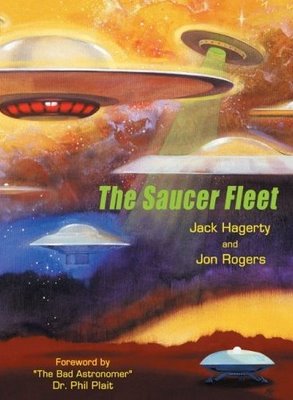
The Robert J. Sawyer Web Site
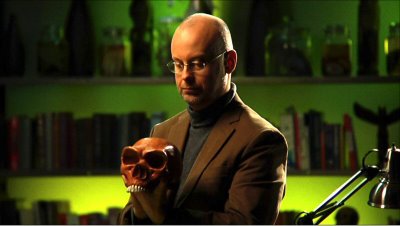
The Robert J. Sawyer Web Site
Labels: Supernatural Investigator

The Robert J. Sawyer Web Site

The wildly thought-provoking first installment of Sawyer's WWW trilogy explores the origins and emergence of consciousness. The thematic diversity -- and profundity -- makes this one of Sawyer's strongest works to date.As my character Caitlin would say, "Sweet!"
The Robert J. Sawyer Web Site
Labels: Wake
Woot! eReader, my favourite ebook application -- recently released for the iPhone -- is now in beta for the BlackBerry Storm. Now, if they'd just get a version for an e-ink reader to market ...
The Robert J. Sawyer Web Site
Labels: ebooks
There's a mini writing retreat going on at Chez Sawyer right now, and it's all about sequels. Hayden Trenholm is here, visiting from Ottawa, and he's working on his laptop at my kitchen table, sprinting towards the end of his revisions on Steel Whispers, the terrific sequel to his hard-boiled SF novel Defining Diana from Bundoran Press. His deadline is eight days away, on March 1.
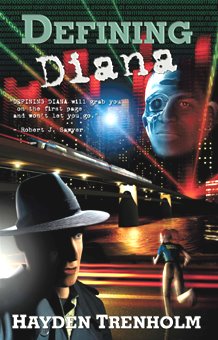

The Robert J. Sawyer Web Site
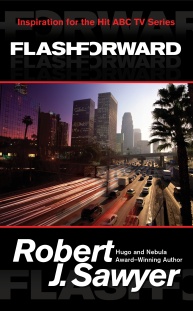
The Robert J. Sawyer Web Site
Labels: Flash Forward, Flashforward
Over at Locus Online, Mark Kelly has updated the indispensable Locus Index to Science Fiction Awards with results through the end of 2008 (and he's also given it a very attractive facelift).
The Robert J. Sawyer Web Site
Labels: Milestones

The Robert J. Sawyer Web Site
Labels: Flash Forward, Flashforward
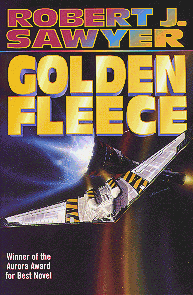
The Robert J. Sawyer Web Site
Labels: Milestones
The American Heritage English Dictionary says it's two words: "light bulb."
The Robert J. Sawyer Web Site
Labels: Writing
Quill & Quire Online just reported:
The Harper Tories have promised to maintain existing funding levels for the country’s magazine industry ($75.5-million annually), but guidelines announced this week for the new Canada Periodical Fund could put Canada’s small-run literary magazines in jeopardy.(For my non-Canadian readers, Harper is Stephen Harper, Canada's current prime minister; the Tories are the ruling, but minority, Conservative party.)
The new Canadian Heritage-run program merges two other federal funding bodies – the Canada Magazine Fund and the Publications Assistance Program – in an effort to streamline operations and tie support of the periodical sector to “the reading choices of Canadians.” This new system won’t become a reality until at least 2010, but when it does, funds will be allocated using a formula based on paid circulation, and magazines with less then 5,000 annual subscribers will be shut out altogether.
The Robert J. Sawyer Web Site
Labels: Publishing
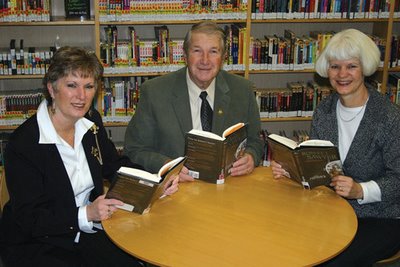
The Robert J. Sawyer Web Site
Labels: Rollback
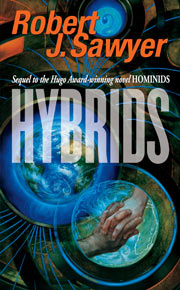
At what point in your creative process did you decide that Wake et al., would be a trilogy? And was it the same point for your first trilogy (or 2nd) or was the first one more of the publisher's choice (as in "this is too long to publish as a single novel; let's break it up into a trilogy")?My answer is might be of interest to other writers, so I'm sharing it here:
Has your plotting evolved over time to be more aware of this sort of thing?
The Robert J. Sawyer Web Site
Labels: Far-Seer, Hominids, Neanderthal Parallax, Publishing, Wake, Writing
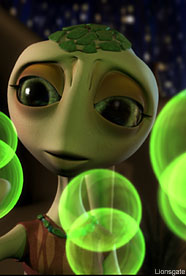
The Robert J. Sawyer Web Site
Labels: Identity Theft
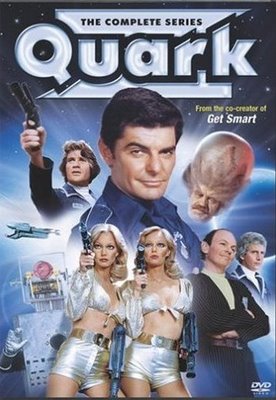
The Robert J. Sawyer Web Site
Labels: Pop Culture
... they cut the check! I received today the big purchase-price payment from ABC for the TV rights to my novel Flash Forward. Woot!

The Robert J. Sawyer Web Site
Labels: Flash Forward, Flashforward
I've often taught science-fiction writing in week-long courses at the Banff Centre in the ski-resort town of Banff, Alberta. I'm sure my students remember The Banff Book & Art Den -- the one bookstore in Banff -- as fondly as I do.
The Robert J. Sawyer Web Site
Labels: Bookselling
No, it's not a scam -- it's the Canadian government's annual kickback to Canadian writers to compensate them for their lost royalties on copies of their books circulated in libraries.
The Robert J. Sawyer Web Site


The Robert J. Sawyer Web Site
An interesting phenomenon has emerged with discussion of ebook readers. You see it over on the iRex discussion forum, and in the hardware-specific topics on Mobileread.com (the Kindle section, the Sony Reader section, and so on), and elsewhere: any criticism of the device (the hardware, the availability of content for it, and so on), is taken as a failing of character on the part of the person making the criticism, with sinister suggestions made about hidden agendas. It actually makes those discussion forums rather less pleasant -- and less productive -- than they should be.
The Robert J. Sawyer Web Site
Labels: ebooks
I had dinner last night with my friend Diane Lacey, who is on the Hugo Awards committee for this year's Worldcon in Montreal, and she asked that I remind people that the deadline for nominations is drawing near -- as it also is for the Auroras.
The Robert J. Sawyer Web Site
Labels: Awards 2009
An email I received today from a university student, wanting to write her first novel:
I have just read your advice on writing. I am struggling to come up with what to write about. I am sort of tired of writing about things relating to me. I feel like my head is a confused sea of ideas. Can you help me?My reply:
For me, ideas to write about come from months and months of research. Pick something that thematically interests you -- the plight of the poor, race relations, the abortion issue, internationalism, whether it makes since to spend money going into space, the question of whether God exists -- and then just immerse yourself in reading nonfiction on that topic looking for ideas and points related to it that lend themselves to dramatic treatment.
Books don't spring full-blown from one's forehead; they are the results of months of research and planning before the first word is written.
Good luck!
The Robert J. Sawyer Web Site
Labels: Writing
... I love the Kindle, as I said loudly and clearly right here when it first came out. It's a great piece of hardware, and Jeff Bezos has done a lot to bring pricing sensibility to the ebook marketplace.
The Robert J. Sawyer Web Site
Labels: ebooks
An interesting shift over the last little while at Locus Online.
The Robert J. Sawyer Web Site
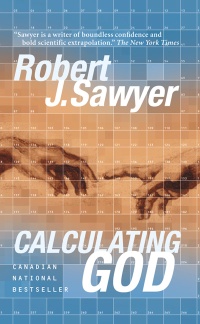
Although most of this profound science fiction novel is passive as the two scientists debate the existence of God, this is a terrific tale that will have the audience pondering how they would we react if an ET arrived with strong empirical evidence that God exists. The story line mostly focuses on Hollus the believer and Thomas the non-believer who wants to believe as he is dying from cancer. There is also a limited but fascinating look at the reactions of various people from the Intelligent Design crowd to the Darwinists and all sorts in between who have their own agendas. Fans of cerebral science fiction will relish the visit from a theistic evolutionary ET spider.I'm actually re-visiting Calculating God myself: I'm listening to Audible.com's Audie-award-nominated audiobook of the novel right now; the reading, by Jonathan Davis, is terrific.
The Robert J. Sawyer Web Site
Labels: Calculating God
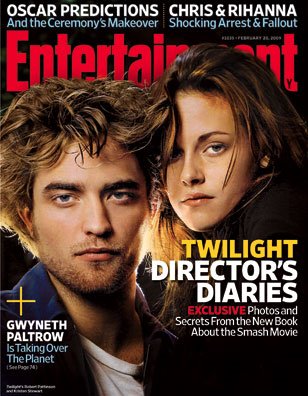
Despite the fact that they are weathering stagnant -- or downright dreary -- ratings for dense shows like Heroes and Lost, the networks are still planning on ambitious series with complex mythologies for next fall.Indeed we do -- and it's nice to see Flash Forward at the top of the list!
As the drama development season winds up this month, some of the most notable projects include ABC's Flash Forward (an adaptation of the sci-fi novel by Robert J. Sawyer) and Eastwick (based on John Updike's The Witches of Eastwick), NBC's Day One (lots of aliens from Heroes' Jesse Alexander), and Fox's Masterwork (a National Treasure-like tale from Prison Break's Paul Scheuring).
"These are all huge shows," says Endeavor agent Ari Greenburg. "Writers are obsessed with Damages and Lost. They all want to write complex dramas."
The Robert J. Sawyer Web Site
Labels: Flash Forward, Flashforward

What's not to like? Vivid storytelling with interesting characters, during which we are rocketed through metaphysical exploration of what it is to be conscious (human versus ape hybrid versus web intelligence), lightning flashes illuminate the nature of perception through translucent eyelids and an ape Picasso, 2-D versus 3-D, cellular automata, neuroanatomy, family dynamics, schoolyard dynamics, internationalism, and so much more. Jane Goodal meets Stephen Wolfram at a cocktail party by Lettvin, J.Y. Maturana, H.R. McCulloch, and W.S. Pitts (What the Frog's Eye Tells the Frog's Brain). A plethora of ideas on every witty page, yet character- and narrative-driven. Superb!Woot!
The Robert J. Sawyer Web Site
Labels: Wake
... you have to buy from the Amazon.com Kindle store.
Myth: If you buy a Kindle, you are locked into Amazon's Kindle store.And he goes on to site Fictionwise.com as an alternative.
Truth: There are many sources for books that can be read on the Kindle.
The Robert J. Sawyer Web Site
Labels: ebooks
As I've already said, I support the ability of the blind and visually impaired to be able to use assistive technologies -- including screen-readers -- to access text. Hell, anyone who's read my Wake (recently serialized in Analog), which has a blind girl as the main character, can't have any doubts about that.
We note, however, that the device itself cannot be used independently by a blind reader because the controls to download a book and begin reading it aloud are visual and therefore inaccessible to the blind.Now, some have said the text-to-speech quality is so bad that no one but the blind would routinely use it; it's a "GPS voice," as Stephen King called it. But it will not always be so; Amazon is savvy enough to grab the rights now when few will use this technology, rather than waiting until the technology is more mature and widely used.
The Robert J. Sawyer Web Site
Labels: ebooks
Twenty-six years ago, on January 4, 1983, I joined the Writer's Digest Book Club. I bought a lot of books from them over the years -- my friend book-collector Jack Brooks once remarked, looking at bookcases in my home, that I had the largest private collection of books about writing he'd ever seen. I let my membership lapse some years ago, though, but thought I'd check out what they were up to these days.
The Robert J. Sawyer Web Site
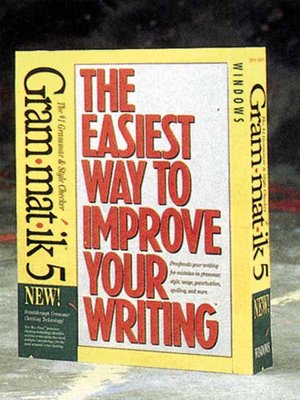
The Robert J. Sawyer Web Site
Labels: Software
I figured I should put my money where my mouth is.
The Robert J. Sawyer Web Site
Labels: ebooks
Woot! Go me!
Well, it's been almost a year and I have finished reading the last of your books and short stories. I've read every single one!Which is precisely what I needed to hear as I struggle to finish my new novel Watch, which is due 10 days from now ...
I'm writing to tell you how much I have enjoyed them all. Your characters are believable. The science in the stories is fascinating. I love the philosophical and theological implications of the tales. The stories stay with me after I have finished them and provide opportunities for further thinking! And discussion... My two teens are tired of hearing me talk about "Robert J. Sawyer". :-)
Actually, my daughter has read three of your books and enjoyed them very much and my son always asks me to tell him about the plot of the book I have just finished.
My favourites have been the Neanderthal trio, Calculating God (my all-time favourite) and, to my surprise, The End of an Era. I was even amazed to find myself enjoying the Quintaglio Ascension. I didn't think I would like dinosaurs as main characters, but you made them believable.
Just wanted to let you know how much I have enjoyed your work.
The Robert J. Sawyer Web Site
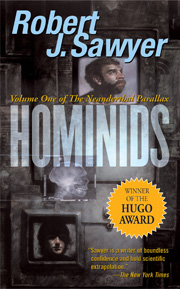
The Robert J. Sawyer Web Site
Labels: Hominids, Neanderthal Parallax
In the discussion of whether the ways in which an ebook document may be used (for instance, whether the person who has licensed that document can be restricted from printing it out or having text-to-speech software read it aloud), one commenter on this post of mine wrote, "You actually DON'T have the right to tell me what I can do with something that I legally purchased."
The Robert J. Sawyer Web Site
Labels: ebooks
... was a great success. I bought a tuxedo, so I wouldn't have to keep renting one:
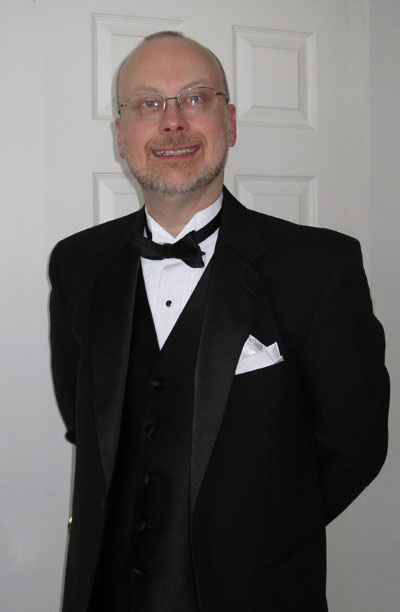
The Robert J. Sawyer Web Site
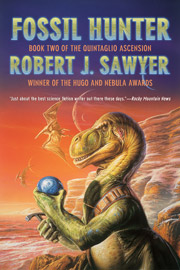
"I'd seriously recommend Fossil Hunter as better than any high school biology text I've seen on classic Darwinian evolution." --Paul Levinson in The New York Review of Science Fiction
The Robert J. Sawyer Web Site
Labels: Fossil Hunter
... and the Authors Guild is objecting to this. It's a very interesting point. Traditionally, print rights and audiobook rights are separate. Audible.com and others have done audiobooks of my novels, and those deals are with me, not the print publisher (in fact, today I just got a nice check from my agent for part-two of Audible.com's fee for their audio book of my Wake, coming in April).
The Robert J. Sawyer Web Site
Labels: ebooks
"Evolution is not a theory -- it's a fact. It really happened."
There is grandeur in this view of life, with its several powers, having been originally breathed into a few forms or into one; and that, whilst this planet has gone cycling on according to the fixed law of gravity, from so simple a beginning endless forms most beautiful and most wonderful have been, and are being, evolved. -- Charles Darwin
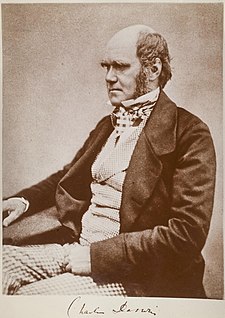
The Robert J. Sawyer Web Site
I'm absolutely thrilled to be included on this list over at David Halpert's SciFiWatch of "Nine Science Fiction Blogs You Should Keep Track Of." It's a great group to be part of!
The Robert J. Sawyer Web Site
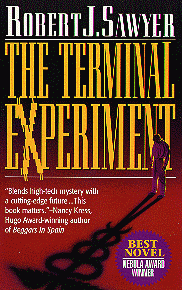
The Robert J. Sawyer Web Site
Labels: Film Rights, Terminal Experiment
... but my friend Virginia O'Dine drew this clip from Onion News to my attention. LOL!
The Robert J. Sawyer Web Site

The Robert J. Sawyer Web Site
Labels: Flash Forward, Flashforward, Hominids, Humans, Hybrids, Neanderthal Parallax

The Robert J. Sawyer Web Site
Labels: Supernatural Investigator
Carolyn and I were in Turkey from Saturday, January 31, through Friday, February 6, 2009, so I could give a keynote address at a business conference there. Of course, we squeezed in some great sightseeing, too! Here are a few photos from the trip.

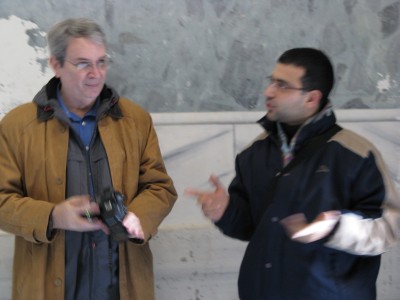

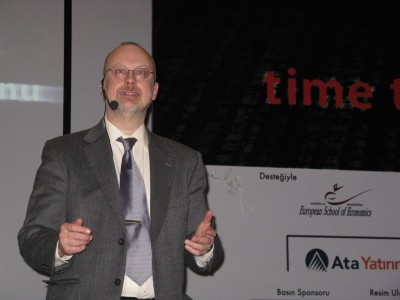
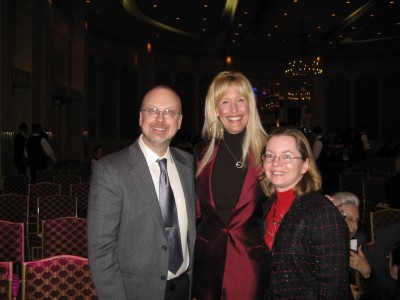
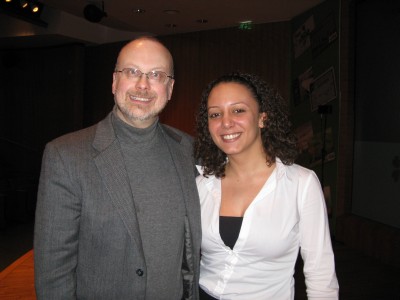
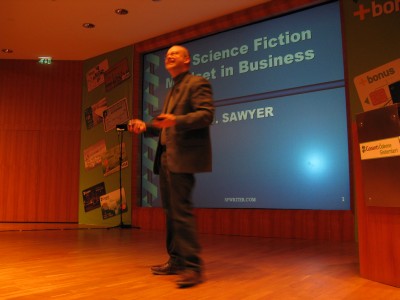








The Robert J. Sawyer Web Site
Labels: Trips
As a lead-up to my trip to Istanbul, I did four quick-and-dirty by-email interviews for Turkish newspapers, wire services, and magazines. The deadlines on these were so tight that I just had to bang out my answers without having a chance to compose my thoughts or edit my responses -- so don't expect me to defend to the death anything I say in them. :)
The Robert J. Sawyer Web Site
Labels: Interviews, Talking Turkey

Calculating God, by Robert J. Sawyer, Narrated by Jonathan Davis, Audible, Inc.You can get Audible's version of Calculating God here.
Childhood's End, by Arthur C. Clarke, Narrated by Eric Michael Summerer, Audible, Inc.
Ghost Radio, by Leopoldo Gout, Narrated by Pedro Pascal, HarperAudio
Skybreaker, by Kenneth Oppel, Narrated by David Kelly, Full Cast Audio
Sunrise Alley, by Catherine Asaro, Narrated by Hillary Huber, Blackstone Audio, Inc.

The Robert J. Sawyer Web Site
Labels: Audible, Calculating God
This Thursday, February 12, 2009, is the 200th birthday of Charles Darwin, and Discovery Channel Canada is doing a special episode of its nightly science-news program Daily Planet devoted to Darwin Day. The guests are science-fiction writer Robert J. Sawyer (author of Hominids) and paleontologist Peter Ward (co-author of Rare Earth).
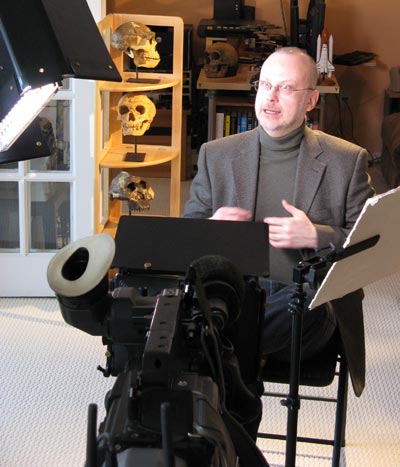
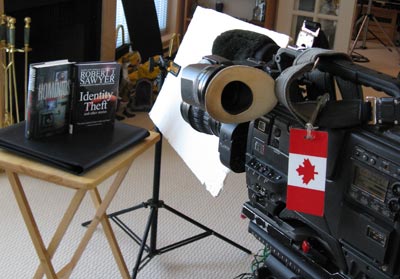
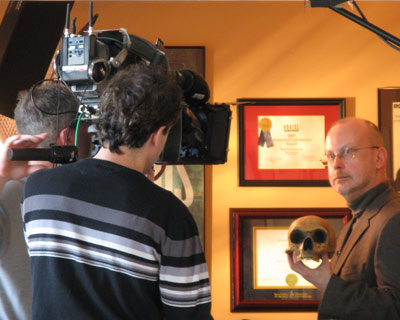
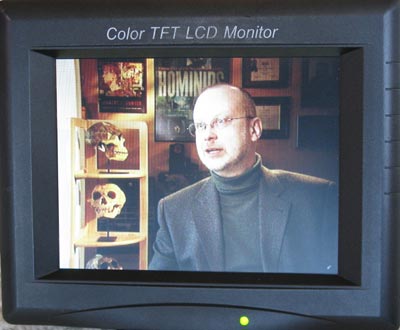
The Robert J. Sawyer Web Site
Labels: Interviews, TV
The Office of the Future
The Robert J. Sawyer Web Site
Labels: Interviews, Talking Turkey
Another nice email today, also prompted by an online book order:
I have to let you know that you have turned me on to reading again. I read a lot through college but in my adult life I have not found anything that makes me make the time for reading until a few weeks ago when a friend at work was reading Flashforward. Since then I've read Flashforward, Mindscan, and Calculating God. I had forgotten that this world is full of rich ambiguity and possibilities; your books are waking up the part of me that wants to explore life by reminding me that we don't know everything just yet. Please keep up the great work!*Blush.*
The Robert J. Sawyer Web Site
As a lead-up to my trip to Istanbul, I did four quick-and-dirty by-email interviews for Turkish newspapers, wire services, and magazines. The deadlines on these were so tight that I just had to bang out my answers without having a chance to compose my thoughts or edit my responses -- so don't expect me to defend to the death anything I say in them. :)
The Robert J. Sawyer Web Site
Labels: Interviews, Talking Turkey
Seattle has withdrawn its bid for the 2011 World Science Fiction Convention, leaving Reno the winner by default. Details are here.
The Robert J. Sawyer Web Site
Labels: Conventions


The Robert J. Sawyer Web Site
-748692.jpg)
The Robert J. Sawyer Web Site
Labels: Interviews

So, yes, indeed, now is the time to take longer strides. But it's not just time for a great new American enterprise. Rather, it's time, if I may echo another speech, for black men and white men, Jews and Gentiles, Protestants and Catholics -- and Hindus and Muslims and Buddhists, and men and women of all faiths, and men and women of none -- for individuals from every one of our 191 united nations, for members of every race and religion that make up our unique, varied brand of humanity -- to go forward together, in peace and harmony, with mutual respect and friendship ... [Chapter 25]For me, it was key that the first post-Bush president acknowledge the large numbers of atheists and nonbelievers, and I'm delighted to see Obama do just that.
Four decades ago, my predecessor in the Oval Office, John F. Kennedy, said, `Now is the time to take longer strides -- time for a great new American enterprise.' I was just a kid in a Montgomery ghetto then, but I remember vividly how those words made my spine tingle ... [Chapter 5]I'm very proud of the speech I wrote for the fictitious president (the full text of which is here), but am even prouder, as an often-conflicted American-Canadian dual citizen, that my real president had the courage to acknowledge us nonbelievers in his inaugural address.
The Robert J. Sawyer Web Site
Labels: Hybrids, Neanderthal Parallax
Now that I'm back from Turkey, I've had a chance to watch this week's (3 February 2009) episode of Supernatural Investigator, which I host for Canada's Vision TV. This was episode 2 of 17, and it was entitled "Life From Other Worlds," with Mac Tonnies as our investigator of the week.
The Robert J. Sawyer Web Site
Labels: SETI, Supernatural Investigator

The Robert J. Sawyer Web Site
Labels: Awards 2009, Randy McCharles
Nice fan note today, which made me smile (actually sent to Carolyn, who handles the business of selling my books online):
Just a quick note to let you know that I've received my books and I'm absolutely delighted with my purchase. From one book lover to another, the care in packing is very much appreciated (all of my rarer editions in the library are all in the same type of form-fitting plastic bags), and I was extremely happy with Rob's personalizations: they were exactly what I was looking for. Please pass along my sincere thanks to the future Grand Master!
I've been thinking about Rob's work for the last little while, as I seem to be going through a small Sawyer Renaissance, reading Golden Fleece, Factoring Humanity, Calculating God and being halfway through Frameshift in the last week or so. I've come to the conclusion that my favorite Sawyer book is whichever one I've last finished, because, and I mean this in only the admiring way, Rob's writing is addictive -- He's the Lay's Potato Chip of Science Fiction: Betcha can't read just one!
The Robert J. Sawyer Web Site
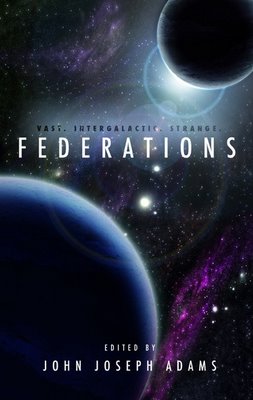 Holy cow! How often do you get to be betwen the covers with Lois McMaster Bujold, Orson Scott Card, Anne McCaffrey, and Robert Silverberg? Woot!
Holy cow! How often do you get to be betwen the covers with Lois McMaster Bujold, Orson Scott Card, Anne McCaffrey, and Robert Silverberg? Woot!The Robert J. Sawyer Web Site
Labels: Short Fiction

The Robert J. Sawyer Web Site
Labels: Flash Forward, Flashforward
As a lead-up to my trip to Istanbul, I did four quick-and-dirty by-email interviews for Turkish newspapers, wire services, and magazines. The deadlines on these were so tight that I just had to bang out my answers without having a chance to compose my thoughts or edit my responses -- so don't expect me to defend to the death anything I say in them. :)
The Robert J. Sawyer Web Site
Labels: Interviews, Talking Turkey
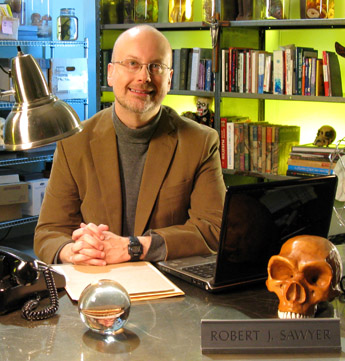
The Robert J. Sawyer Web Site
Labels: Interviews, Supernatural Investigator